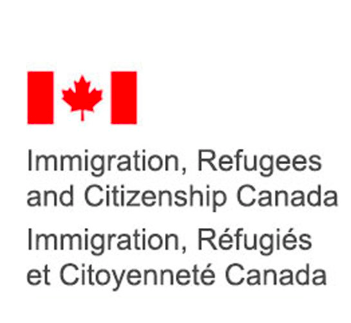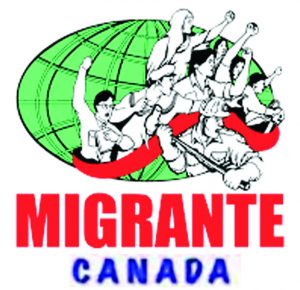CAN Work Philippines pilot program: Faster work permits for foreign workers but are their rights protected?
CAN Work Philippines pilot program: Faster work permits for foreign workers but are their rights protected?

MARC MILLER, Immigration, Refugees and Citizenship Canada (IRCC) Minister
Oct 24, 2023
By Veronica C. Silva
LJI Reporter
The Philippine Reporter
Canada has announced a pilot program to streamline processing work permits of foreign workers from the Philippines for employers who are committed to “fair and ethical recruitment guidelines.” However, Filipinos working in Canada, including those who have fallen victim to abusive employers, express concern about how workers’ rights will be protected.
CAN Work Philippines was announced on October 19 in celebration of the first Philippines–Canada Friendship Week, said a press statement from Immigration, Refugees and Citizenship Canada (IRCC). The pilot will be housed in IRCC’s visa office in Manila and is open to employers “hiring approximately 50 or more workers, or for critical occupations in sectors such as health care, construction and agri-food.”
 In the statement, IRCC said “Canada takes its responsibilities to protect temporary foreign workers very seriously,” and that employers participating in the pilot must be committed to the guidelines of the International Organization for Migration (IOM), an agency of the United Nations. Canada is providing the IOM $200,000 to help train and promote IOM’s Fair and Ethical Recruitment Due Diligence Toolkit.
In the statement, IRCC said “Canada takes its responsibilities to protect temporary foreign workers very seriously,” and that employers participating in the pilot must be committed to the guidelines of the International Organization for Migration (IOM), an agency of the United Nations. Canada is providing the IOM $200,000 to help train and promote IOM’s Fair and Ethical Recruitment Due Diligence Toolkit.
But Filipinos in Toronto, Ont. expressed concern on the gap in policies between recruiting foreign workers, which is a federal responsibility, and protecting labour rights, which is under provincial and territorial responsibility. They also questioned Canada’s Indo-Pacific Strategy – under which the pilot program is — and called on both sending and receiving countries to take responsibility to protect workers’ rights.
Jill-Ann Santiago, program coordinator for service provider Migrants Resource Center Canada (MRCC), told The Philippine Reporter that based on their experience with clients, that after kababayans land in Canada, the Canadian government must do more to protect them from abusive employers.

Jill-Ann Santiago, program coordinator for service provider Migrants Resource Center Canada (MRCC).
MRCC clients are mostly undocumented kababayans.
“While it is good that there are guidelines in fair and ethical recruitment and streamline the recruitment of workers from the Philippines, we don’t think it addresses the root cause of exploitation by illegal recruiters and abusive employers,” said Santiago. She added that the Canadian government — especially the provincial and federal governments — must improve the gaps in oversight, particularly in the implementation of the laws that are supposed to protect migrant workers.”
Danilo de Leon, chair of Migrante Canada, who was himself a victim of abusive employers as a temporary foreign worker (TFW), said he, too, had to endure long hours of work with no overtime and night differential pay. Yet, he couldn’t complain due to this status.
“I ha(d) no choice; if I lose my job, who will send money to my family [in the Philippines]? I was tied to my employer,” he said. Eventually, though, he and other workers were able to claim their backpay, but not after the workers banded together and even formed a union.
Asked whether the pilot can help protect foreign workers from illegal recruiters or abusive employers, De Leon said: “No. Unscrupulous employers and recruiters will find ways to make money [off foreign workers].

DANILO DE LEON, chair of Migrante Canada
Indo-Pacific Strategy
De Leon added that sending countries and receiving countries should be responsible to ensure that foreign workers’ rights are protected. He added that employers and sending countries stand most to benefit from the pilot.
He said that sending countries like the Philippines will definitely send people to Canada because they benefit from the remittances of overseas workers.
“The Indo-Pacific Strategy is cheap source of labour,” he said, adding that foreign workers’ remittances keep the Philippine economy afloat.
In the same statement announcing the pilot, Canada said: “The Philippines is an important partner for Canada’s Indo–Pacific Strategy and a major source of newcomers to Canada.”
The Philippines has been one of the chief sources of immigrants to Canada. It is also a good source of temporary foreign workers (TFWs) from the Philippines. Canada said that for the first six months this year, one in 10 work permits for TFWs were issued to Filipino nationals.
 De Leon reiterated Migrante’s call for status for migrant workers and regularization — as promised by Prime Minister Justine Trudeau in 2021 — as the solution. “Having status is workers’ protection and access to services, such as healthcare,” he said.
De Leon reiterated Migrante’s call for status for migrant workers and regularization — as promised by Prime Minister Justine Trudeau in 2021 — as the solution. “Having status is workers’ protection and access to services, such as healthcare,” he said.
Santiago and De Leon also call for the registration of recruiters and employers of foreign workers, something that has already started in Manitoba under the Worker Recruitment and Protection Act of 2009. In Ontario, effective January 1, 2024, temporary help agencies and recruiters are required to register for a licence if they would like to hire foreign workers and temporary workers. Stiff penalties await violators.
Comments (0)